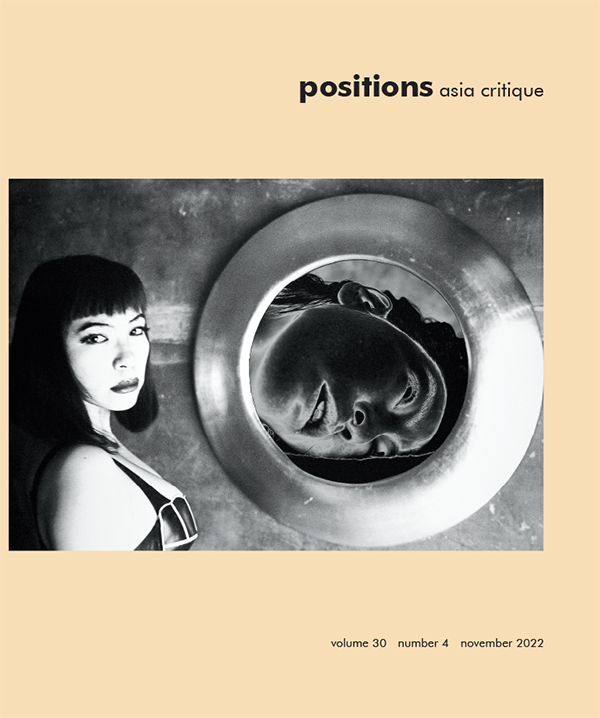In continued celebration of National Poetry Month we are featuring a weekly poem on the blog. This week, a poem by Yokota Hiroshi, and a corresponding research article by Andrew Campana, published in positions: asia critique, volume 30, issue 4.
Hieru kokoro 冷える心 (Cold Heart)
“Today was so nice out
I could see Mt. Fuji, clear as day”
said my aunt, who just came back from an outing
“Oh, it’s not just today!
You can see it all the time around the end of fall.”
It was in the mid-afternoon
with a late November chill
I do not know the real Fuji
so when someone says Fuji
the prints of Hokusai are what immediately come to mind
but in my head
even though there’s Fuji through Hokusai’s careful eye
there is no form left to its own nature
even though there’s the beauty of his deformed ridges
there is no joy in following smooth slopes with a naked eye
and I
came to believe that was the real thing
convinced that this was the real Fuji
my heart
is always full
of these deformed things
“I want to climb Mt. Fuji, even just once”
said my cousin
me too even just once
I think I want to see the real Mt. Fuji
I think I want to know the real world

Further Reading:
“You Forbid Me to Walk: Yokota Hiroshi’s Disability Poetics” by Andrew Campana.
This article, published in positions: asia critique and made freely available through May 31, explores the work of the poet Yokota Hiroshi, a leader in Japan’s disability rights movement, and how he used his experiences of having cerebral palsy to create a new kind of disability poetics. Like in much of the world, Japan in the 1970s saw the emergence of disability movements that aimed to challenge the inaccessibility and cruelty of a society made by and for nondisabled people. Yokota was involved with two key groups of this kind—the literary coterie Shinonome and the activist group Aoi Shiba no Kai—and over several decades published multiple books about the ideologies that justified killing disabled people and the construction of disabled society and culture, as well as several books of poetry. In his poems, he aimed not only to shed light on the oppression and dehumanization of disabled people but to rethink dominant conceptions of embodiment and “able‐bodiedness” itself.
